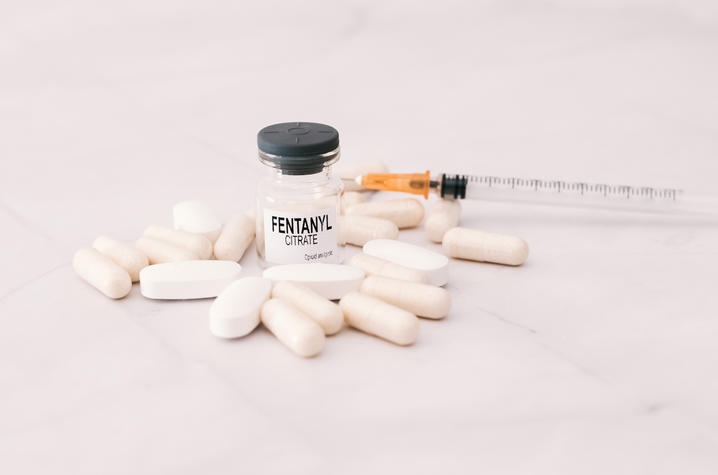Fentanyl: facts vs. fiction

The University of Kentucky Public Relations and Strategic Communications Office provides a weekly health column available for use and reprint by news media. This week's column is by faculty and staff of the UK HEALing Communities Study.
LEXINGTON, Ky. (Feb. 19, 2024) – Fentanyl is a synthetic opioid that is about 50 times stronger than heroin, making it an incredibly powerful drug. It is often made illegally and added to other drugs like heroin, methamphetamine, cocaine, ecstasy and benzodiazepines (like Xanax). In Kentucky, illicit fentanyl has become a significant concern, and was detected in over 70% of overdose deaths in 2022.
Unfortunately, the spread of misinformation surrounding fentanyl has fueled unnecessary fear, leading to stigmatization of people who use drugs that can prevent them from seeking treatment and essential harm reduction services. Additionally, it may prevent someone experiencing an overdose from getting life-saving help. Let's address some of the most common myths:
Myth: Fentanyl is naloxone-resistant.
Fact: Naloxone is a medication that quickly reverses the effects of opioids and helps restore breathing in someone who is experiencing an overdose. Naloxone DOES work to help reverse a fentanyl overdose. Make sure you always call 911 in the event of any overdose.
Myth: People can overdose by touching or inhaling fentanyl by accident.
Fact: Despite sensationalized news stories, simply touching or coming into contact with someone who has overdosed does not cause an overdose. Secondhand exposure poses no danger, so don't hesitate to administer naloxone and save a life.
Myth: You can tell if fentanyl is in your drug by looking at it.
Fact: It is very difficult to know if what you are using contains fentanyl just by looking at it, tasting it, or smelling it. Fentanyl test strips can help you find out if what you are using may have fentanyl or fentanyl analogs in it, but they are not always 100% accurate. It is always safest to assume fentanyl may be present. Try not to use alone and have someone who can administer naloxone present in the case of an overdose.
UK HealthCare is the hospitals and clinics of the University of Kentucky. But it is so much more. It is more than 10,000 dedicated health care professionals committed to providing advanced subspecialty care for the most critically injured and ill patients from the Commonwealth and beyond. It also is the home of the state’s only National Cancer Institute (NCI)-designated Comprehensive Cancer Center, a Level IV Neonatal Intensive Care Unit that cares for the tiniest and sickest newborns and the region’s only Level 1 trauma center.
As an academic research institution, we are continuously pursuing the next generation of cures, treatments, protocols and policies. Our discoveries have the potential to change what’s medically possible within our lifetimes. Our educators and thought leaders are transforming the health care landscape as our six health professions colleges teach the next generation of doctors, nurses, pharmacists and other health care professionals, spreading the highest standards of care. UK HealthCare is the power of advanced medicine committed to creating a healthier Kentucky, now and for generations to come.




